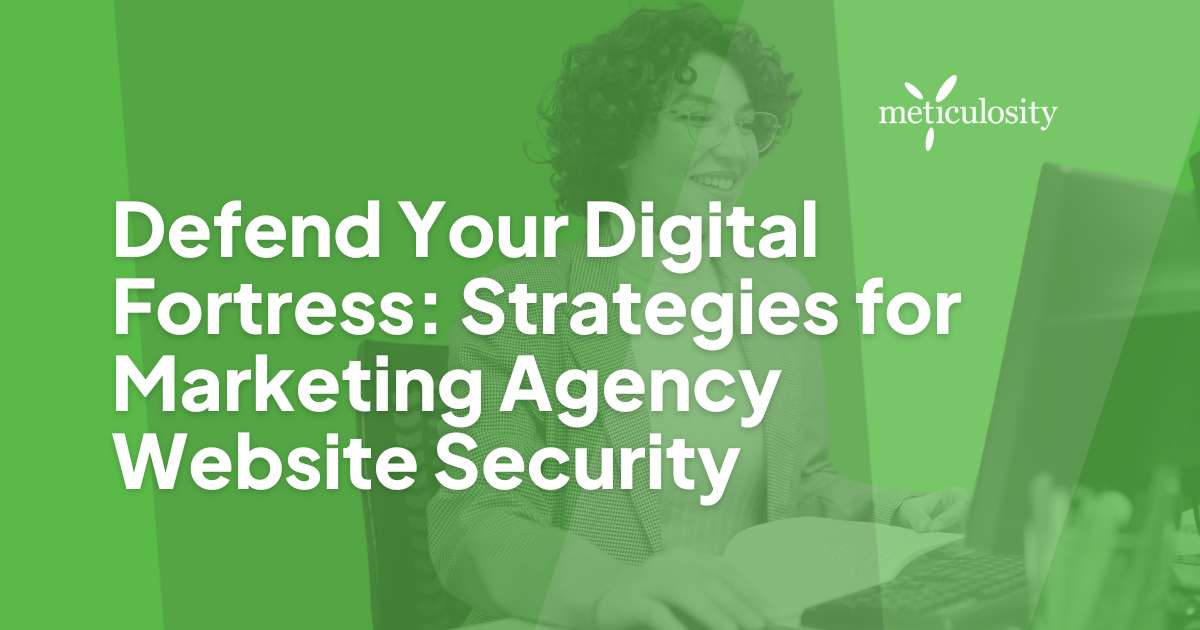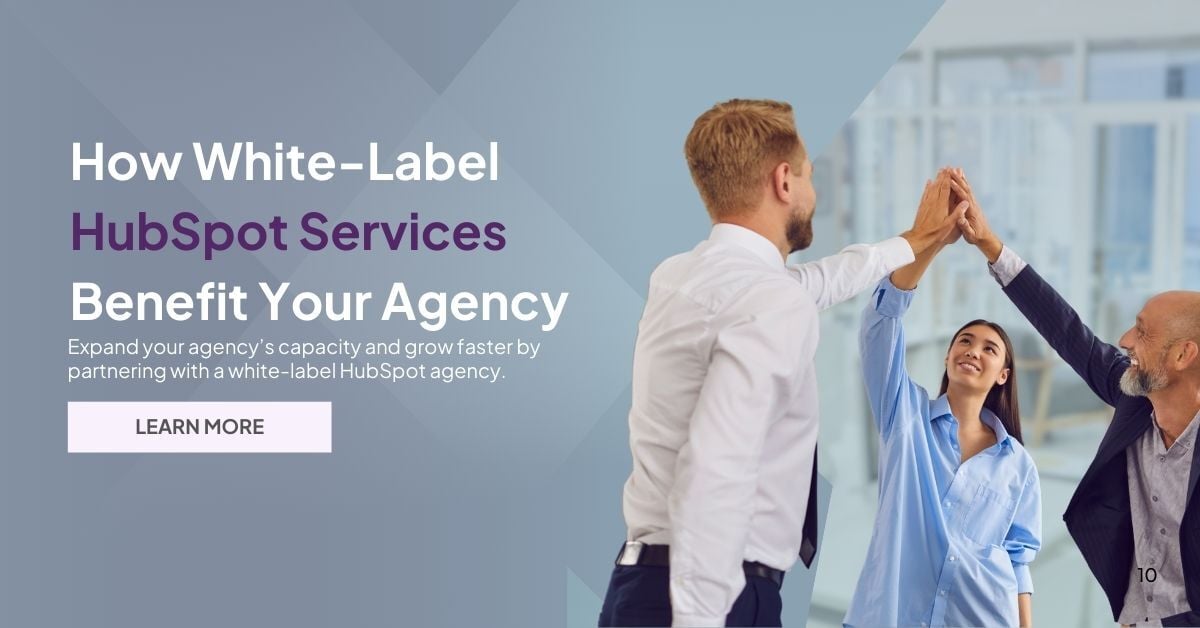In the whirlwind realm of digital marketing, think of your website as more than just a tool—it's the digital heartbeat of your agency. The very thought that it could fall prey to one of those all-too-common cyber-attacks is enough to cause sleepless nights, especially when you consider that nearly half—43%, to be exact—of these digital onslaughts specifically target small businesses.
Don't let worry keep you up at night. This article is dedicated to bolstering your defenses and ensuring that your online presence is more of a fortress than a house of cards. We understand how personal and valuable your work is, so let's dive in together and arm ourselves with the knowledge to safeguard our digital turf! Key Takeaways
- Ensure website security for your marketing agency by implementing robust malware prevention methods, preventing phishing attempts, mitigating DDoS attacks, and safeguarding against data breaches.
- Strengthen your website's security by implementing SSL encryption, regularly updating software and plugins, enforcing strong authentication methods such as multi-factor authentication, and conducting regular security audits.
- Educate your employees on security protocols to create a culture of vigilance and ensure everyone plays a role in defending your agency's website from potential cyber-attacks.
Understanding the Importance of Website Security for Marketing Agencies
Moving from the basics, let's dive into why website security matters so much for marketing agencies. Your website is like a digital fortress that holds valuable info. Clients trust you to keep their data safe—not just names and emails but also their secrets about what makes them stand out in the market.
If hackers get in, they can steal this info or, even worse, take control of your site.
This can hurt your reputation big time. Imagine losing clients' trust because their private stuff got leaked from your site. That's bad news for business and could cost a lot of money to fix—or worse, it might never be fixed at all! Marketing agencies need strong security to protect against these dangers and show clients they are serious about safety online.
Common Security Threats: How to Protect Your Agency Website
To protect your agency website from common security threats, it's essential to implement effective malware prevention methods, prevent phishing attempts, mitigate DDoS attacks, and safeguard against data breaches.
Malware prevention methods
We know how scary it can be to think about malware attacking your marketing agency's website. It's a threat that can do real harm, but you've got this! Here are ways to keep those nasty programs away from your digital space:
- Install anti-malware software: Pick a trusted program that looks for and stops malware. Make sure it's always running and checking your system.
- Keep everything up to date: Update your website platform, themes, and plugins as soon as new versions come out. These updates often fix security holes.
- Use web application firewalls: Set up a firewall designed for websites. It filters out bad traffic and blocks hacking attempts before they reach your site.
- Scan regularly for vulnerabilities: Schedule regular checks on your website for weak spots that hackers might use to sneak in malware.
- Limit file uploads: If people can upload files to your site, make sure there are strict rules about what type of files are okay.
- Back up your website frequently: Always have recent backups so if malware hits, you can restore a clean version of your site immediately.
- Train staff on safe practices: Teach everyone at your agency not to click on suspicious links or download unknown files.
- Control access levels: Give employees only the necessary website access based on their roles to reduce risk areas for attack.
Preventing phishing attempts
Phishing attempts can trick you into giving away private information. Here are some steps to stop these tricks and keep your marketing agency's website safe.
- Stay alert for emails that ask for personal details. Don't click on links or download files from unknown senders.
- Use email filters to catch spam and phishing messages before they reach your inbox.
- Train your team to recognize phishing emails. Teach them not to share sensitive info via email.
- Install software that tells you if a website is safe when you click on a link in an email.
- Create clear rules about sharing company data. Make sure everyone at your agency follows them.
Mitigating DDoS attacks
After preventing phishing attempts, it's crucial to also protect your marketing agency website from DDoS attacks. These attacks can overwhelm your website with traffic, causing it to slow down or even crash. Here are strategies to mitigate DDoS attacks:
- Use a reliable web hosting service that offers DDoS protection.
- Implement rate limiting to restrict the number of requests from a single IP address.
- Set up a content delivery network (CDN) to distribute traffic and reduce the impact of an attack.
- To identify and block malicious traffic, utilize intrusion prevention systems (IPS) and intrusion detection systems (IDS).
- Consider using a cloud-based security service that can absorb and mitigate large-scale DDoS attacks.
Protecting against data breaches
Mitigating DDoS attacks is crucial, but protecting against data breaches is equally important. Here are essential strategies to defend your agency website from data breaches:
- Use robust encryption methods, such as SSL/TLS protocols, to secure sensitive client information.
- Implement strong access controls and user permissions to limit unauthorized access to valuable data.
- Regularly backup and encrypt stored data to ensure its safety in case of a breach or cyber-attack.
- Utilize intrusion detection systems and firewalls to monitor and prevent unauthorized access attempts.
- Train employees on handling sensitive information securely and how to recognize potential security threats.
- Establish incident response protocols that outline the steps to take if a data breach occurs, including notification procedures and containment strategies.
Looking to empower your agency? Learn more here.
Strengthening Website Security: Strategies for Marketing Agencies
Implementing SSL encryption is essential to ensuring that all data transmitted between your website and its visitors is secure and protected from potential cyber threats. Regularly updating software and plugins will also help to patch any vulnerabilities that hackers could exploit.
Enforcing strong authentication methods, such as multi-factor authentication, adds an extra layer of security against unauthorized access. Lastly, conducting regular security audits will allow you to identify and address any potential weaknesses in your website's defenses.
Implementing SSL encryption
Implementing SSL encryption is crucial for marketing agency websites to protect sensitive information and build trust with website visitors. Encrypting data transmission ensures that any information exchanged between the website and its users remains private and secure.
By obtaining an SSL certificate, marketers can provide a secure connection for online interactions, safeguarding against potential data breaches and establishing their commitment to protecting user privacy.
Implementing SSL encryption not only protects your users but also boosts your website's credibility in the eyes of search engines like Google. This can lead to improved search rankings, ultimately driving more organic traffic to your site benefiting your marketing efforts.
Regularly updating software and plugins
After implementing SSL encryption, regularly updating software and plugins is crucial to keep your marketing agency website secure. Here's how you can do it:
- Update your content management system (CMS), such as WordPress or Joomla, as soon as new versions are released to patch vulnerabilities.
- Regularly update all plugins and themes to the latest versions to ensure they have the latest security patches.
- Remove any unused plugins and themes, as they can still pose a security risk if not updated.
- Set up automatic updates for your CMS, plugins, and themes whenever possible to stay protected against emerging threats.
- Monitor official security announcements from CMS and plugin developers to be aware of any vulnerabilities that need immediate attention.
Enforcing strong authentication methods
To complement regularly updating software and plugins, enforcing strong authentication methods is crucial in safeguarding your agency's website. Here are essential strategies for marketers and business professionals:
- Utilize two-factor authentication (2FA) to add an extra layer of security, requiring users to provide two different authentication factors.
- Implement biometric authentication, such as fingerprint or facial recognition technology, to enhance user verification.
- Employ single sign-on (SSO) solutions to streamline access while maintaining stringent authentication standards.
- Integrate role-based access control (RBAC) to assign specific permissions based on individual organizational roles.
- Encourage the use of complex passwords and regular password updates to fortify user accounts against unauthorized access.
Conducting regular security audits
To complement enforcing strong authentication methods, conducting regular security audits is crucial. Here's how to do it effectively:
- Schedule regular automated vulnerability scans to identify potential weaknesses in your website security.
- Conduct manual security assessments to thoroughly review and test the robustness of your website's defenses.
- Engage third-party cybersecurity experts to perform penetration testing and assess the effectiveness of your security measures.
- Document all audit findings and promptly prioritize necessary actions to address identified vulnerabilities.
- Establish a comprehensive incident response plan that outlines steps for addressing security breaches and mitigating their impact.

Best Practices for Maintaining a Secure Marketing Agency Website
Educating employees on security protocols, establishing a disaster recovery plan, and staying compliant with regulations is crucial for maintaining a secure website. Stay ahead of potential threats by implementing these best practices.
Educating employees on security protocols
To safeguard our agency website, educating employees on security protocols is crucial. Regular training sessions can cover identifying phishing attempts, recognizing malware, and understanding the importance of strong passwords.
We must also stress the significance of keeping software and plugins updated while highlighting the potential risks of data breaches. By nurturing a culture of vigilance and awareness among our team members, we reinforce our digital fortress against cyber threats.
Empowering employees to implement security best practices protects sensitive information and bolsters our overall cybersecurity posture. Everyone plays a role in upholding the integrity of our digital assets, so ongoing education ensures that every staff member is equipped with the knowledge and tools required to actively contribute to our collective defense against online threats such as identity theft and account breaches.
Establishing a disaster recovery plan
As we prioritize educating employees on security protocols, it's equally crucial to establish a disaster recovery plan. This plan outlines the steps to take in case of a security breach or unexpected downtime.
It involves creating backups of essential data and systems, ensuring they can be quickly restored if necessary. Additionally, establishing clear communication channels and defining roles during an incident prepares your team to respond swiftly and efficiently.
By proactively setting up a comprehensive disaster recovery plan, your marketing agency can minimize potential damage and quickly resume operations after any unforeseen events.
Staying compliant with regulations
To ensure the security and integrity of our marketing agency website, it's crucial to stay compliant with relevant regulations. This involves keeping abreast of privacy settings, adhering to phishing prevention standards, and maintaining identity protection measures.
We can effectively defend our digital fortress by following online account security guidelines and regularly updating our protocols in line with industry regulations.
Utilizing SSL encryption, enforcing strong authentication methods, and conducting regular security audits align with compliance requirements as well. Additionally, educating employees on these protocols will contribute to maintaining a secure website within regulatory boundaries.
Importance of Regular Website Maintenance for Security
Regular website maintenance is crucial for ensuring the ongoing security of your marketing agency's website. By regularly updating software, plugins, and security protocols, you can effectively mitigate potential vulnerabilities that could be exploited by cyber threats.
Staying proactive with regular maintenance also helps identify and promptly address any emerging security concerns. This continuous effort contributes to the overall resilience of your website against a wide range of potential security risks, ultimately safeguarding sensitive data and maintaining customer trust.
Continuously monitoring and updating security protocols will help in stay ahead of evolving cybersecurity threats and keep your marketing agency's digital fortress secure. It's essential to make regular website maintenance a non-negotiable priority within your overall digital strategy to stay one step ahead of potential threats.
Continuously Monitoring and Updating Security Protocols
To keep your marketing agency website secure, it's crucial to continuously monitor and update security protocols. This means staying vigilant for any new threats or vulnerabilities that may arise.
Regularly check for updates to your website platform, plugins, and other software to ensure you have the latest security patches installed. Monitor your website traffic for any unusual activity that could indicate a potential security breach.
Stay informed about the latest security trends and best practices in the industry to adapt your protocols accordingly. By consistently monitoring and updating security protocols, you can stay one step ahead of potential threats and keep your digital fortress strong.
Ensuring all employees know their role in maintaining security is vital. Encourage them to report any suspicious activity immediately so that swift action can be taken.
Implementing regular training sessions on cybersecurity best practices will help keep everyone informed and prepared against evolving threats. Additionally, consider establishing a dedicated team or individual responsible for overseeing ongoing security monitoring and updates within your agency.

Conclusion
In conclusion, safeguarding your marketing agency website is crucial. Stay vigilant against cyber threats by implementing robust security measures. Regular maintenance and updates will help keep your digital fortress secure.
Educate your team to ensure everyone plays a role in defending your agency website from potential attacks.
Click here to learn more about agency marketing.
FAQs
1. Why is website security crucial for marketing agencies, and how can it impact their operations?
-
- Data Protection: Website security is vital for safeguarding sensitive client information, ensuring trust, and complying with data protection regulations.
- Operational Continuity: A secure website minimizes the risk of disruptions caused by cyber threats, ensuring the continuous operation of marketing agency activities.
- Reputation Management: Robust security measures protect the agency's reputation by preventing data breaches and maintaining website integrity.
2. How frequently should security audits be conducted, and what is their significance in the context of website security?
-
- Regular Audits: Security audits should be conducted at least quarterly to identify and address potential vulnerabilities.
- Proactive Defense: Audits serve as a proactive defense strategy, allowing agencies to stay ahead of evolving cyber threats and prevent security breaches.
- Continuous Improvement: By routinely assessing and improving security measures, agencies can enhance the overall resilience of their digital infrastructure.
3. What role do encryption and SSL/TLS protocols play in ensuring the security of marketing agency websites?
-
- Confidentiality: Encryption, particularly through SSL/TLS protocols, ensures the confidentiality of data transmitted between users and the website.
- Data Integrity: SSL/TLS helps maintain the integrity of data, preventing unauthorized tampering or alterations during transmission.
- Trust Building: Implementing robust encryption builds trust with both clients and website visitors, assuring them that their interactions are secure.
4. How can marketing agencies balance client confidentiality with the need to outsource website security services?
-
- White-Label Security Services: Utilize white-label security services, allowing agencies to outsource while maintaining confidentiality through rebranding.
- Direct Client Communication: Agencies should retain direct communication with clients regarding security measures, ensuring transparency and addressing concerns.
- Confidentiality Agreements: Establish clear confidentiality agreements with security service providers to safeguard sensitive client data and maintain secure working relationships.
Ensuring the security of a marketing agency's website is necessary for data protection and a fundamental aspect of maintaining operational continuity and client trust in the digital realm.







